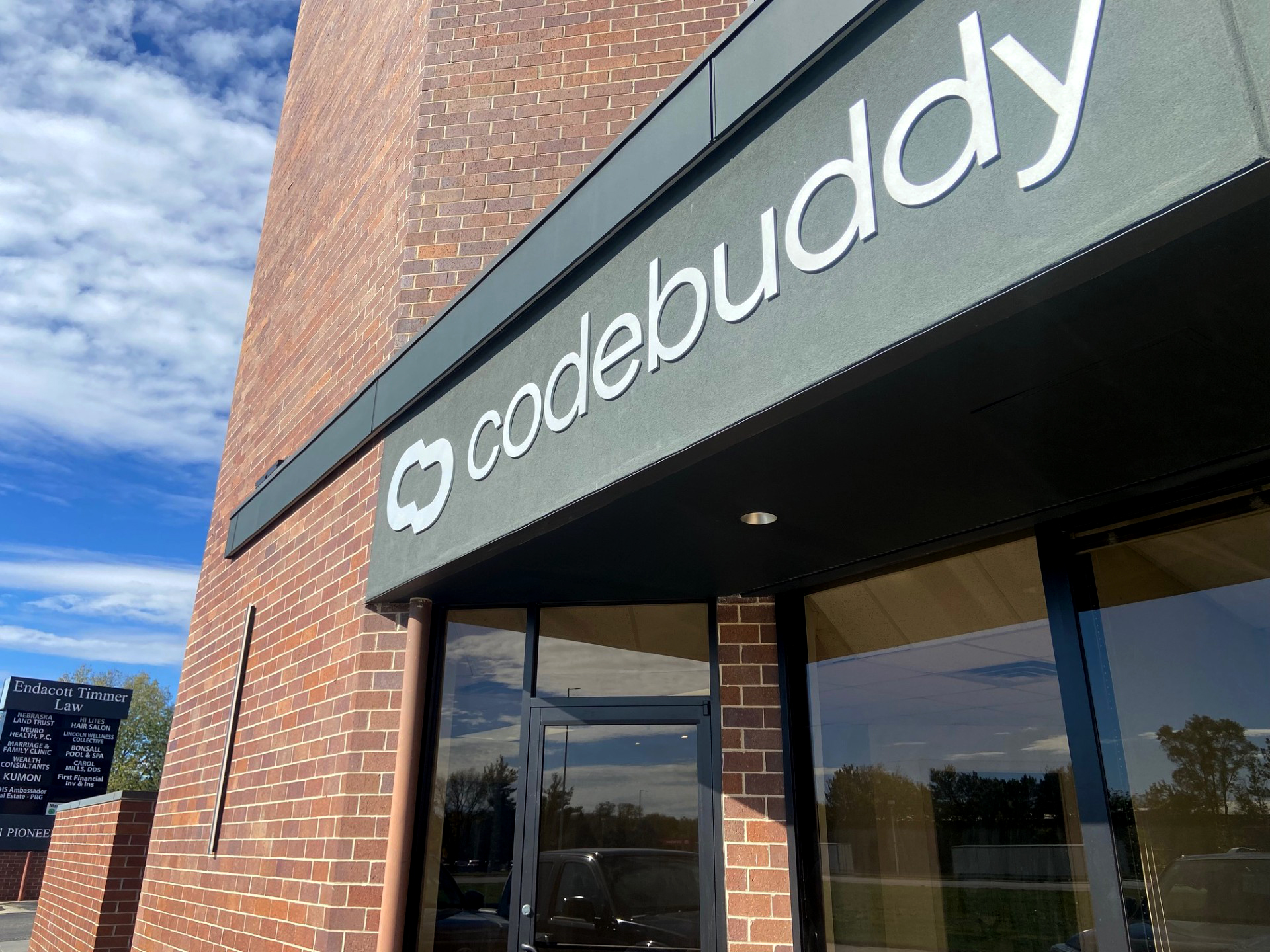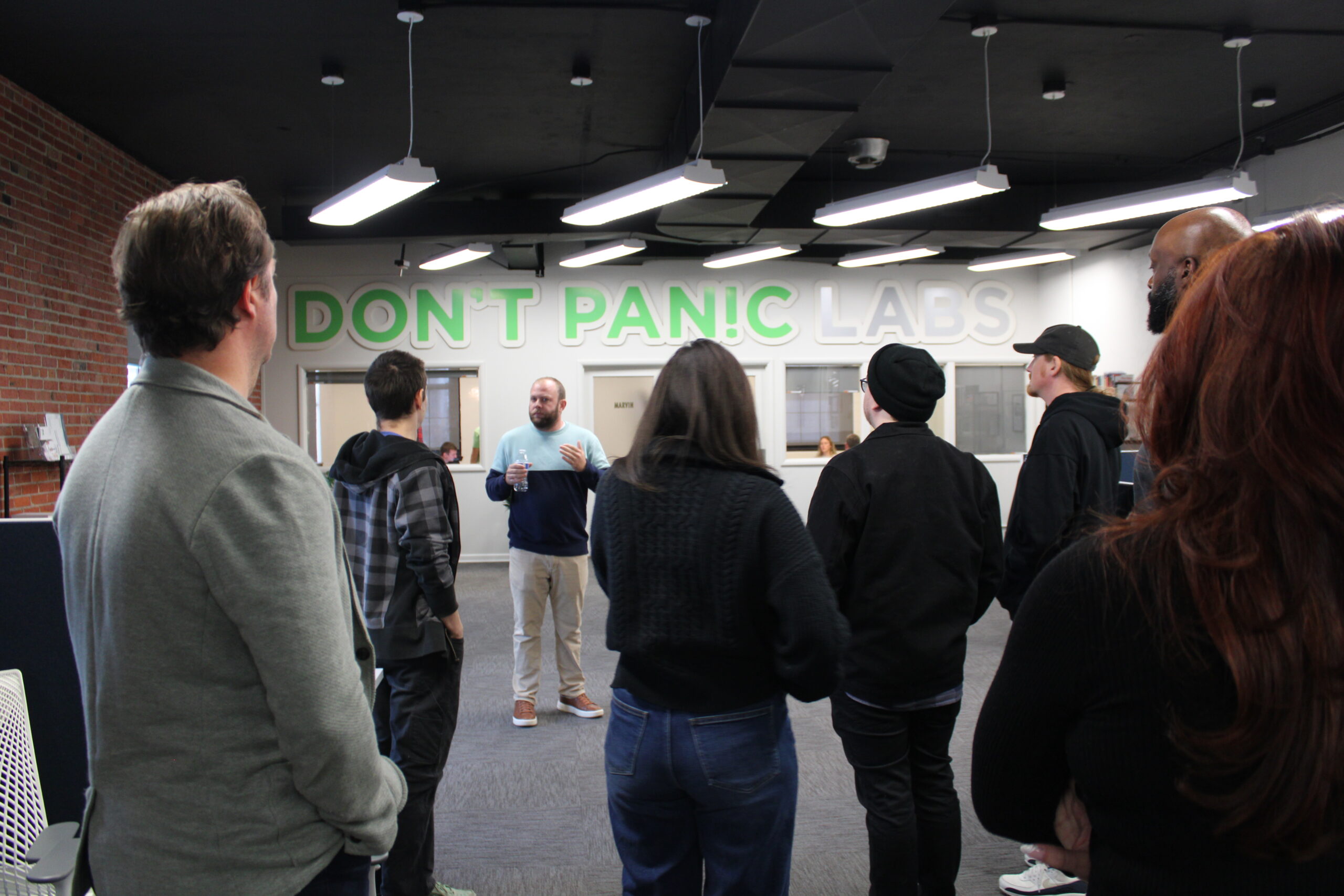Meet Tom Chapman, Co-founder & Chief Executive @ Peeq Pro / Founder & Principal @ Chapman and Company
How would you describe the startup culture in Nebraska?
I think Nebraska’s startup culture has been getting better over the last twenty years. We have certainly made it easier to build technology companies, but I still think the region and its entrepreneurs lack the ambition to build really big businesses that reshape how people think about problems.
Nebraskans want to understand “the how” to get to a billion dollars before someone has $1 in revenue, which is simply not a fair mechanism to judge vision. But it does lead to companies in Nebraska being efficient with capital and often targeting digestible next steps. Overall, Nebraska has created a much, much better environment than in the mid-2000s. But we still lag in the aspiration to build globally-shaping businesses.
How do you balance taking risks and making calculated decisions in pursuit of innovation?
You don’t. Innovation does not come from incremental improvement governed by fear of failure. Innovation comes from exploring and digging deep into problems and letting them guide you to solutions. There is certainly some calculation of cost in time and energy — but not risk. Calculating risk is a mechanism for others to contain the entrepreneur, not for the entrepreneur to contain themselves.
As far as investment goes, a choice not to invest due to the risk of failure is so different from balancing innovation. Investment is necessarily about managing a portfolio against expectations — that is not innovation at all. That’s just finance. The goal of an investment portfolio in the early stage is to have a couple of outsized successes because there is a willingness to accept full losses. This is a high-variance investment strategy, not an innovation one. It is likely that the bets in this case will be on higher variance companies and those likely have innovation as a core component. But investors — like everyone else — are rarely good at picking winning “innovations.” This is why many investors will bet on jockeys rather than horses.
How do you define success and what metrics do you pay the most attention to?
For establishing a successful entrepreneurial ecosystem, the most important metric depends on your goal. If I want high-growth businesses to receive risk capital, it is probably fundings aggregated over a couple of years to seven years that I seek first. If you want a “cool” place, then it is about external-facing communications, like mentions in TechCrunch or the New York Times. It just depends on the goal. Most places start by saying we want more. More of what? Simply wanting more of everything leads to a lack of community buy-in.
If you are asking about my specific metrics of success for Peeq Pro, we are constantly looking at inside sales to current customers since it has a huge revenue impact, our delivery consistency, patient onboards through our proprietary workflows and Shopify buyers. So, those are mostly revenue or sales-related.
We obviously want our products and services to be great, but those are harder to measure from a process perspective. For example, we are targeting a huge increase in repurchase rates of patients right now. We expect patient revenue to start signaling a massively improved workflow in our core product. There are metrics embedded throughout that line of thinking, but a single metric probably does not do it justice.
What are the top one or two challenges / opportunities Nebraska startups face?
Nebraska can be insular. This is great because it creates an incubator for getting early customers and testing ideas, but it also can cause businesses to see their opportunity as too small. Moreover, for certain types of businesses, there just aren’t a lot of models of success. For example, there are not a bunch of consumer goods being made in Nebraska. That means investors add less value, mentors add less value, vendors are not available, etc. All of this makes starting certain types of businesses a real challenge.
Within that, I can say that virtually no states are nailing this problem. Instead, cities and metro areas have built winning strategies for their own ecosystem, but states rarely do. Even in our own state, starting a technology business in Grand Island is much more difficult than in Lincoln. So, the state’s challenges are not the same across the whole geography.
In terms of opportunities, Nebraska — and really Omaha and Lincoln working together — should claim sports technology and build resources and depth in this arena. There are other places that have some, but no place has as much depth on a per capita basis. This should include biomechanics, sensors, devices, health tech and insurance, but it should be around human performance and sports, not just adding sectors to make the size of the market enormous.
I strongly believe that communities are better off being the best in the world at something rather than reasonably adequate at something that is larger. In addition, Nebraska struggles as a brand. Sports tech is sexy and would get people from elsewhere excited about the community.
What is one emerging industry or technology that you believe will have a significant impact on the Nebraska startup ecosystem in the next few years?
Ocular hygiene is going to be a $40B industry. Like oral hygiene before it, ocular hygiene is treating a real and present problem that has not yet emerged on the national scale. Dry eye and its precursor, MGD, affect 70% of adult Americans. This is way up from twenty years ago. Why? Screen use.
We blink 30% as frequently as we should when we look at our phones. And, clinicians agree that the best thing you can do is wash your eyelids. So, I believe that Peeq is on its way to being a multi-billion-dollar business that will dominate the ocular hygiene industry. I have placed my bet with my money, my brain and my commitment. Nebraska has the opportunity to build this industry, but we are not in first place.
Objectively, i.e. not where I am placing my personal bets, I think from a state perspective sports tech is where we should place our bets. The simple reason is that nobody else is looking there and it spirals into lots of other big and interesting places. Every state has an agtech program. Every state has a healthtech program. Every state has a fintech program. These are enormous industries with lots of customers and buyers, but ultimately, the biggest places will dominate existing categories.
To build a deep cluster where you are the best in the world, communities need to pick small industries that will get huge — like sports tech or ocular hygiene. So, I’d focus on those types, even if not those specific ones.



